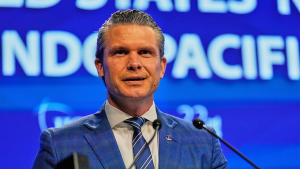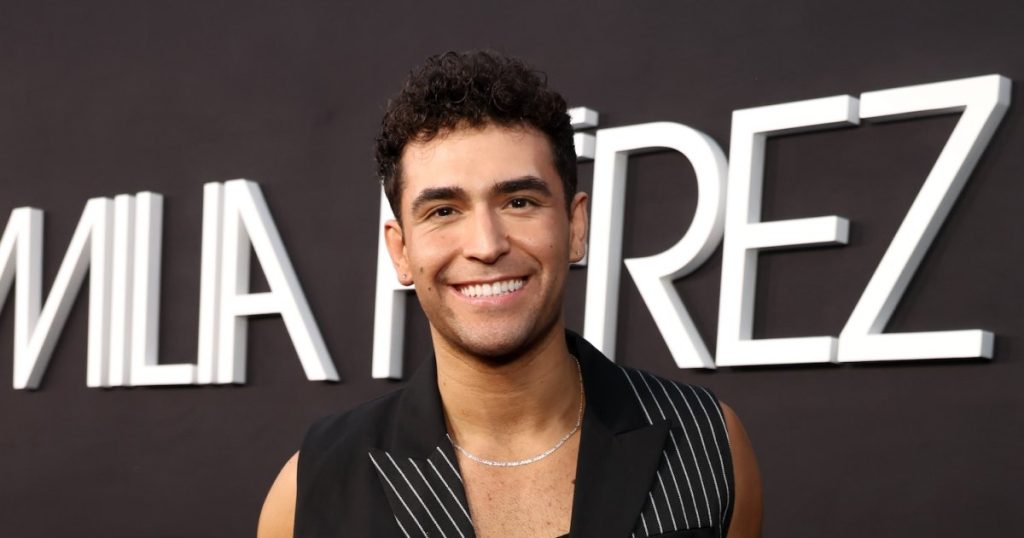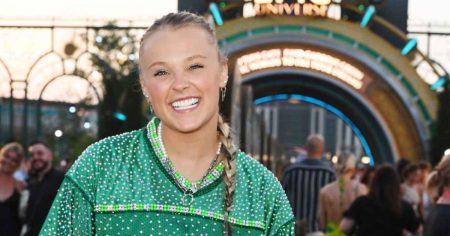Ezra Sosa, a professional dancer on the popular television show “Dancing With the Stars,” ignited a social media firestorm with a TikTok video seemingly mocking the arrest of Luigi Mangione, the suspect in the murder of United Healthcare CEO Brian Thompson. Sosa’s video, posted on December 10, 2023, featured a side-by-side comparison of himself and Mangione, highlighting their strikingly similar physical features. The video, captioned with a joking suggestion that Mangione become his partner on the upcoming season 34 of the show, quickly went viral, drawing both amusement and condemnation from viewers. The controversy stems from the sensitive nature of the underlying crime, the murder of a prominent business executive, and the perceived insensitivity of Sosa’s attempt at humor.
The video itself centered on the uncanny resemblance between Sosa and Mangione. Sosa utilized a popular TikTok trend of merging his image with another, in this case, a photograph of Mangione. The video then shows Sosa shaking his head and laughing, seemingly amused by the similarities in their hair and facial features. The accompanying caption, “he finna be my partner season 34 🥵🙂↔️🤤 #dwts,” further fueled the controversy, appearing to trivialize the gravity of the situation and the ongoing legal proceedings against Mangione. While some found the video humorous, many criticized Sosa for his lack of sensitivity and respect for the victim and his family.
The context surrounding the video adds another layer of complexity. Brian Thompson, the CEO of United Healthcare, was shot and killed outside a New York City hotel on December 4, 2023. Following a five-day manhunt, Luigi Mangione was apprehended in Pennsylvania and subsequently charged with murder and several other offenses, including forgery and illegal possession of a firearm. This high-profile case had already captured national attention, and Sosa’s video injected a dose of unexpected levity into a somber narrative. The juxtaposition of a celebrity dancer’s playful social media post against the backdrop of a murder investigation created a jarring disconnect for many observers.
The public reaction to Sosa’s video was swift and divided. While some fans appreciated his comedic approach and joined in on the joke, others expressed outrage and disappointment at his perceived callousness. Some comments pointed out the insensitivity of making light of a tragic situation, while others questioned the appropriateness of using a murder suspect as comedic fodder. The controversy also brought to light the broader issue of social media etiquette and the potential consequences of using humor in inappropriate contexts. Sosa’s video became a case study in how a seemingly harmless joke can quickly escalate into a public relations nightmare when it touches upon sensitive subjects.
This incident is not Sosa’s first foray into controversial territory on social media. He has previously used his TikTok platform, where he boasts over 502,000 followers, to express opinions on various topics, including “Dancing With the Stars” rules and judging. In one instance, he sparked debate by commenting on the fairness of point deductions for broken holds during performances. His willingness to engage in sometimes contentious discussions online suggests a pattern of using social media to express his views, even if those views are potentially provocative. This history of outspokenness provides further context for the Mangione video, suggesting that Sosa may be comfortable courting controversy online.
The broader implications of this incident extend beyond Sosa’s individual actions. It highlights the increasing blurring of lines between entertainment and real-life tragedy in the age of social media. The rapid dissemination of information and the constant pressure to generate engaging content can sometimes lead to insensitive and ill-timed jokes. Sosa’s video serves as a reminder of the potential pitfalls of using humor in the context of sensitive situations, particularly those involving crime and loss of life. It also underscores the responsibility that individuals, especially those with large social media followings, have to consider the potential impact of their words and actions online. While humor can be a powerful tool for connection and entertainment, it’s crucial to exercise sensitivity and judgment, particularly when addressing complex and emotionally charged issues.










